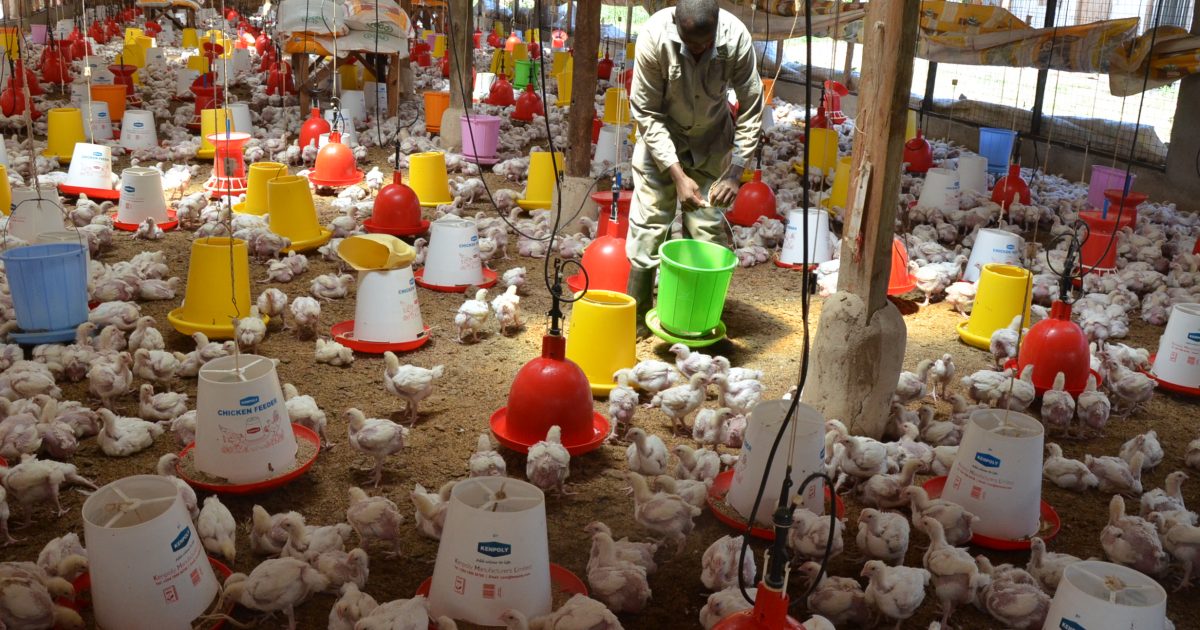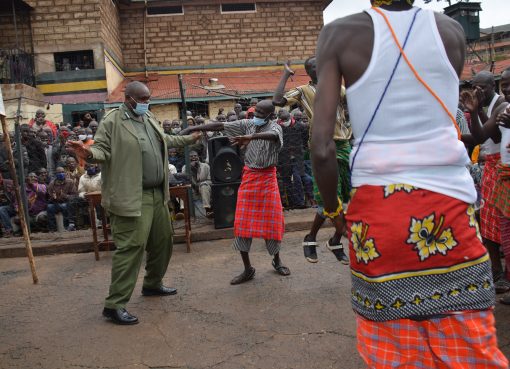Before the Covid 19 pandemic came knocking in the country, Mary Wachira a resident of Gatitu village in Nyeri Central used to supply at least 24,000 broilers to various food outlets in Nairobi.
During those days, Wachira could pocket a cool Sh 5 million from a single sale of her commodities which are a common dish in majority of fast-food eateries in the city.
Unfortunately, the impact of the pandemic dealt her a major blow to her occupation after many of her customers’ closed shop following the slapping of painful but necessary health protocols to help curb new infections.
Today, the former East African Airways employee says the aftershocks of the pandemic not only cut down on her profit margin but equally forced her to scale down on the number of birds she could raise in her 17-acre farm.
“Times have changed since we got a hit from this (Covid 19) disease. Previously we used to rake in millions from the sale of chicken. But Today things are quite different after the pandemic forced many hotels and eateries to close down leaving us with limited options on where to take our meat,” she explains.

So bad is the situation that Wachira’s current bird population stands at 7,000, a far cry from what she used to rear during the hey days.
The slump in her stock of birds has equally forced her to scale down the number of workers in her chicken farm from the original eight to the current four employees. The challenges do not end there though.
For instance, to access a one-day old chick has become a nightmare to most chicken farmers in the country forcing many to abandon the enterprise altogether.
Moreover, the costs of feed for broilers (which normally take at least eight weeks to mature) is on a steady ascent leaving little room to wiggle in terms of returns.
In fact, so bad is the situation that Wachira has been forced to travel to as far as Uganda where the government has zero rated chicks. “I undertook this business since I love broilers. I had mulled over the idea of rearing layers but gave it up after I realized we were getting cheaper eggs from as far as Uganda and South Africa. Unfortunately the cost of rearing broilers is turning out to be another demanding venture owing to the high costs of production which is not good for business,” she notes.
Yet even with imports, a single chick across the border goes for Sh100 which is way above the Sh65 price before the pandemic.
Eutychus Wambugu who is the manager at the farm says he is lucky to have survived being laid off following the Covid 19 outbreak.
And this realization has now become a motivating factor in his daily work knowing very well he would be jobless today like his former colleagues.
As he takes us around the chicken farm, he keeps on reminding us how grateful he is to God and his employer for the opportunity of having a paying occupation to talk about.
“I count myself among the lucky few for the opportunity of having somewhere to work from. I really don’t know where I would be in the event I lost this job. It is a lifeline for my family,” he explains.
On a daily basis, Wambugu is responsible for feeding and taking care of the hundreds of birds in the expansive hoops until they attain maturity.
He also ensures the birds are in good health through constant cleaning of the facility. Hygiene and feeding are twin requirements in rearing of broilers and a neglect of either could be a sure death knell to the entire flock.
To feed a single bird from infancy to maturity costs Sh260 which translates to a tidy sum of money before a farmer can dispose of an entire flock.
On a daily basis Wambugu uses 750 kilograms of broiler marsh to feed the 7,000 birds and ensure they keep the right growth trajectory. This figure increases as the birds mature though the quantity is decreased towards the final weeks to avert a possible heart attack among the birds.
Birds drink a lot and the farm has turned to solar powered pumps to supply the 2,000 liters of water needed daily and fed through remote controlled plastic drinkers.
“Broilers main occupation is feeding and drinking and therefore you need a constant supply of water and growers’ marsh. Deny them water and a steady supply of feed and you are out of business,” he explains.
After the birds are fully grown more than a dozen men are usually hired in slaughtering and packing of the meat in special plastic crates before the consignment is transported under the cover of darkness to ensure it arrives at the Nairobi City market early in the morning.
A well reared broiler can weigh at least 1.4 kilogram which translates to close to sh 336 as one kilogram of meat goes for Sh 240.
But as Wachira says, the issue of where to take her products has never been a headache as buyers are always there as long as one informs them in advance.
“We have never had a challenge in getting a market for our products since I ventured into this sector in 2010.The number of buyers in need of chicken meat is beyond what we can supply. We nevertheless hope a time is coming when we shall go back to the winning days when we used to reap handsome profit from this sector,” she ends on a hopeful tone.
By Samuel Maina




